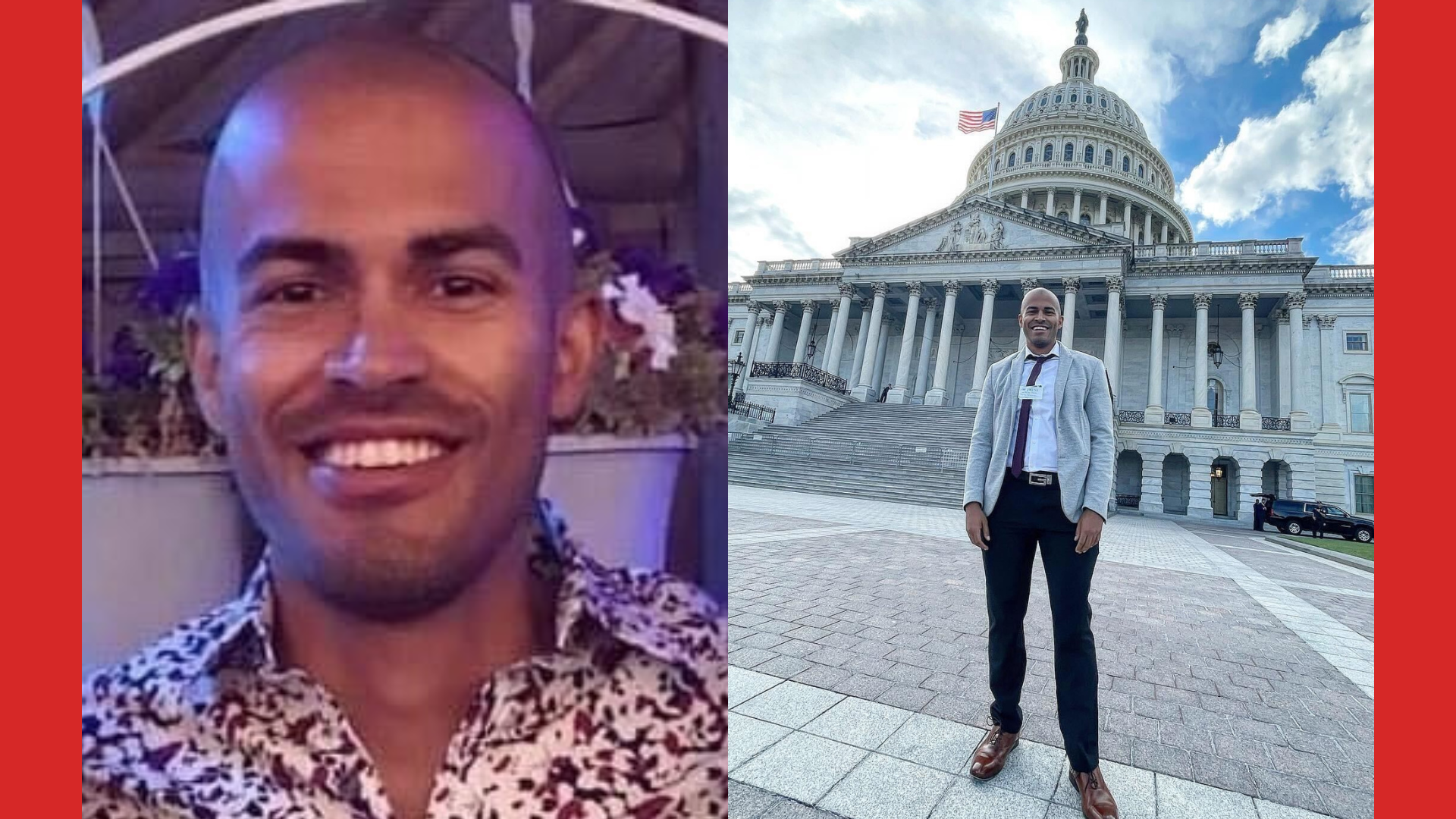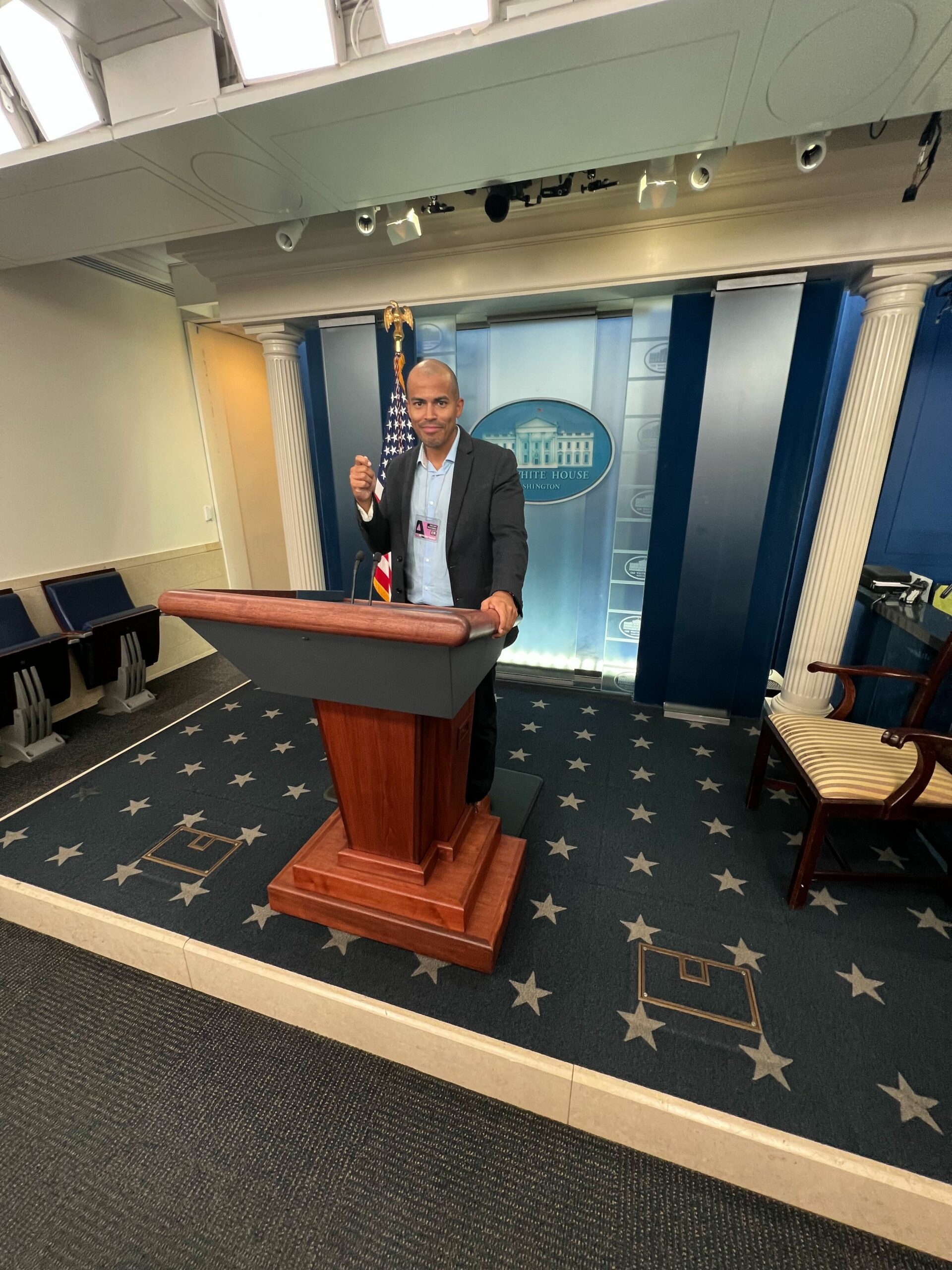Futuro Studios and iHeartMedia’s My Cultura Podcast Network Present ‘Chess Piece: The Elián González Story’
September 25, 2024 /
In this interview, Alamo talks about his challenging upbringing, what he thinks the media gets wrong about Latinos, and why Latino Rebels is so special.

Two years ago, Hector Luis Alamo joined Latino Rebels, our daily news site, as senior editor. Since 2021, he has been editing multiple stories from our contributors—and he has also authored some pieces himself. Just last year, he started Rebels’ TikTok channel, and for the last few months, he has consistently interviewed leading experts for Instagram Lives, which you can also catch on YouTube. He’s a well-rounded kind of guy.
But we wanted to chat with Hector to get to know him a little better.
In this interview, he talks about how his challenging upbringing shaped him, what he thinks the media gets wrong about Latinos, why Latino Rebels is so special, and his hope for Latino media in the future.
Futuro Media: Some people are dead set on pursuing a career in media early on. Was that the same with you? Did you want to be a writer/editor for a daily news site like Latino Rebels growing up? What led you to take this path? When did you make that shift?
Hector Luis Alamo: I’ve always been good at writing —I won Chicago Young Author of the Month back in second grade for writing and illustrating a book on animal hibernation— but it wasn’t until a professor in college told me I had “the horsepower to earn a living with your pen” that I decided to write for the student newspaper. I quickly became editor of the Opinions section, and the rest, as they say, is history.
FM: Can you talk a little about your upbringing? How did it shape who you are as a writer, editor, and, overall, as a person?
HLA: I had a pretty rough childhood, though it could’ve been a lot worse. My mom came from Honduras when she was seven years old and got pregnant with me during her senior year of high school. My dad joined Chicago PD and then became addicted to crack. He was very violent with me, my mom, and my younger brother, and would steal money from my mom and pawn everything in our rat-infested apartment that he could carry away to fund his drug habit. My mom left him after I finished second grade and moved us out to the suburbs.
There’s a lot more to the story, which I’ve mentioned in my writing here and there. My mom worked the graveyard shift for eight years, leaving my brother and me alone every night—we used to run loose with other unsupervised kids from the neighborhood, causing all sorts of mayhem. I was arrested at the beginning of high school for accidentally setting fire to a park (we stupidly built a campfire on the playground at 3 in the morning). As luck would have it, the head of the park district also taught English at a neighboring high school. We were given 25 hours of community service, cleaning up parks, and doing other menial tasks. At the end of the time we had to submit an essay on what we learned. He was so impressed with my writing that he made me swear I would straighten up and pursue an education. I only half-listened.
My family was homeless for a couple of years toward the end of my high school period, and I mostly couch-surfed from friend’s house to friend’s house.
All of my childhood experiences got me interested in politics, who has power and who doesn’t, and, most importantly, how those power dynamics came to be over time. So, after first going to DePaul to study psychology —I wanted to be a psychologist before the admins at DePaul put me into the honors accounting program due to my test scores— I decided to study history, with a special eye toward political history.
FM: Mainstream media has a way of reporting on our communities in such an inhumane way—and oftentimes, in such a reductive manner. How do you keep grounded to offer our readers different angles and perspectives?
HLM: I don’t really follow media that much outside of work hours, which may seem like an odd thing for an editor to admit. I used to follow the news obsessively for years, but not so much these days. Now I just read a few newsletters every morning, follow a few media accounts on social media, and catch a few headlines and stories throughout the day. The gym I go to has one TV set to MSNBC, and another to Fox News. But mostly, I talk to people: friends, family, and most of all, people I’ve met through my work who I’ve become pretty good friends with, either contributors, activists, and so on.
“I have friends and loved ones on all sides of the political spectrum, which is to say I’m able to see things from various angles. As an editor, I tell contributors that I only care to publish what is interesting and important to our readers. There’s math, and everything else is debatable—and I love a good debate.”
FM: What do you think differentiates Latino Rebels from other outlets? Why do you think it’s been around for 12 years? What makes it so special and meaningful?
HLA: First off, Latino media is a tiny world, so any outlet that can survive 10-plus years in it is special automatically. But Latino Rebels, specifically, combines a dedication to reporting on issues of importance to various Latino communities while aiming for a certain standard of professionalism and quality. And we don’t traffic in celebrity gossip or other kinds of content meant solely to maximize eyeballs. People know where we stand and what we don’t stand for.

FM: What’s something that many people in the business get wrong about Latinos? In that same vein, what do you wish could change about the current state of Latino media in the US?
HLA: It’s such a cliche, but a lot of people keep making the mistake of thinking Latinos are only one thing—either this or that, liberal or conservative, Democrat or Republican, Mexican or Puerto Rican, Los Angeles or New York, etc. In reality, because “Latino” is vague, you can even say a “made-up” category, Latinos are and can be anything and everything under the sun.
In terms of Latino media —and I’m speaking of other outlets, of course— I get the sense that a lot of Latinos are playing up their Latinoness. I don’t want to get too deep into what I mean there, but most Latinos will know what I mean right away since more and more are becoming annoyed by how fellow Latinos, especially in media and the performing arts, will play the Latino role instead of just being Latino—whatever that means to each individual and however that plays itself out.
FM: And looking ahead, what’s your vision for the state of Latino media in the future?
HLA: With Latinos being more digitally savvy than most segments of the population, I see Latino media one day soon rivaling mainstream (white) media, and when it does, I hope it will then capture the full variety and diversity of the Latino experience in the United States.
FM: Our Futuro Media founder Maria Hinojosa is a firm believer that Futuro practices “journalism with heart.” How does that resonate with you?
HLA: If journalism is just a job for you, don’t come to Futuro Media. As an editor, I’m always focused on delivering content that is “interesting and important to a Latino audience” (I’m quoting what I tell every prospective contributor). At Futuro, we not only strive to tell stories that matter to our communities, but to tell those stories with utmost care and skill.
FM: Lastly, describe Latino Rebels in three words.
HLA: Smart. Subversive. Community-driven.
***
You can learn more about Latino Rebels here.